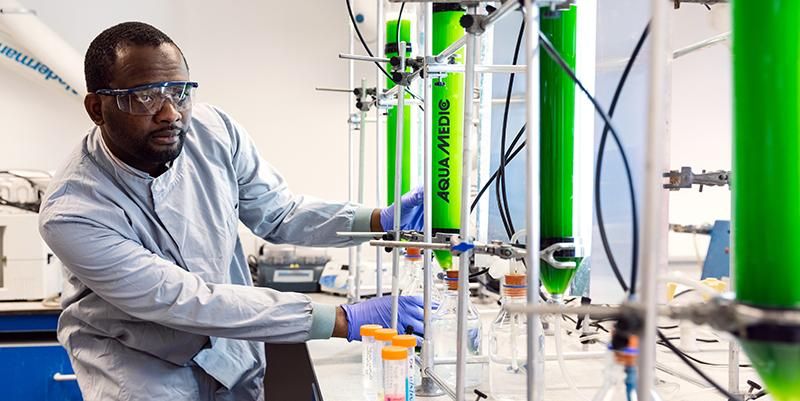Bioenergy

Bioenergy from wood, waste, agricultural residues and energy crops is a major global energy renewable source, and the UK’s Clean Growth Strategy has identified bioenergy as a significant contributor to the energy mix as we move to a low carbon future.
However, there are challenges concerning technical performance, cost effectiveness, sustainable production, food security and biodiversity. We address these challenges through our internationally-renowned academics. In fact, Professor Jenny Jones, Professor in Sustainable Energy, was the only female UK academic to be named on the Thomson Reuters Highly Cited Researcher list 2016.
We're also addressing these challenges through the UK’s only Centre for Doctoral training in Bioenergy, funded by the Engineering and Physical Sciences Research Council (EPSRC). The £4.3 million centre is supporting 50 studentships over five years.
Professor Jenny Jones, Professor in Sustainable Energy, was the only female UK academic to be named on the Thomson Reuters Highly Cited Researcher list 2016.
Challenges for bioenergy research
Our research looks at sustainable approaches for decarbonising energy use, either in industrial processes, in heat, power or transport, utilisation of waste, or in chemicals production from bio resources.
In the short term, we need to be able to generate heat and power from lower grade biomass. This may need to be upgraded through new pre-treatment approaches to improve emissions and efficiency when they are used.
Our researchers are exploring new approaches for doing this, coupled with recovery of nutrients and added value co-products. For example, the EPSRC-funded Supergen Bioenergy Hub, is investigating remediation of contaminated land through biomass crops. Leeds researchers are establishing the levels of contamination in the energy crops and approaches to eliminating it.
Alternative bioenergy sources
We are working on long term bioenergy solutions to decarbonise energy including production of biogas through gasification, reforming, and anaerobic digestion and conversion of algae to biofuels and chemicals using technology such as catalytic processing. We are developing novel technologies to produce fuels from waste materials such as producing hydrogen from waste plastics and tyres, or from waste products from anaerobic digestion and wastewater treatment plants.
Read our case study about how our researchers are working with international partners to find ways to create bioenergy from water hyacinth, an invasive plant causing environmental problems in Uganda.
Sustainable transport
A transition to low-carbon transport is a critical part of the Clean Growth Strategy and research into novel conversion processes as well as production from second and third generation resources is another large area of our research. This is coupled with understanding the issues associated with utilisation in engines and emissions from both road and rail and approaches to mitigate them.
Global impact
We are working with partners in developing countries to ensure our research has a global impact. One example is the African Clean Energy Research Alliance project where we are collaborating with researchers from Uganda, Tanzania and the Democratic Republic of Congo to find solutions for local energy generation including solar thermochemical conversion of biomass, and opportunities for energy generation from biomass slurries.
We are also researching impacts of emissions from deforestation/reforestation, and cookstove use on health and the environment, including climate change.
Work with us on bioenergy
For enquiries about working with us on bioenergy please email the Energy Leeds team via energy@leeds.ac.uk.